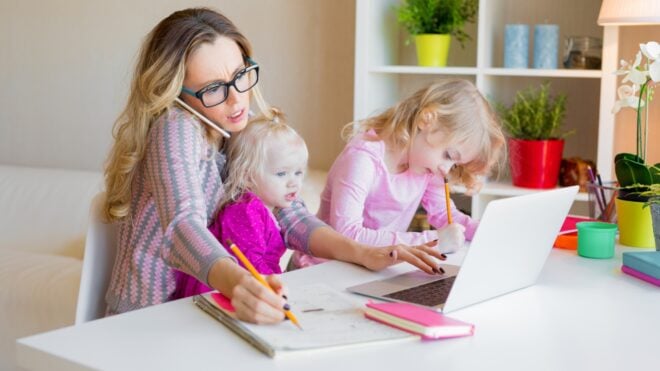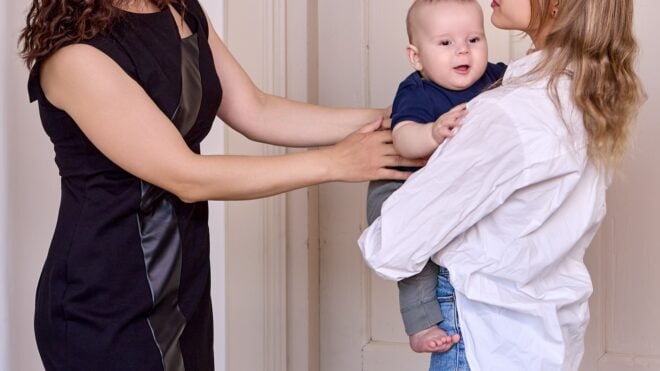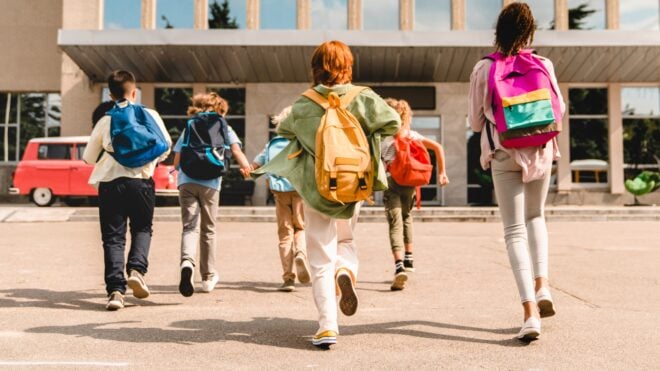Receiving a diagnosis of breast cancer is hard enough—but to find out you have breast cancer while you’re pregnant? That’s something most women would find very hard to imagine.
Luckily, not many women do have to deal with the reality of battling cancer while they’re pregnant, since it’s very rare for the two to coincide. According to The American Cancer Society, current estimates range drastically from 1 in every 1,000 to 1 in every 10,000 pregnant women diagnosed with breast cancer every year.
On the other hand, breast cancer is the most common type of cancer found during pregnancy or while breast-feeding or within the first year of delivery, according to the site.
So how do these women, who are diagnosed during a time that’s meant to be so life changing and wonderful (not to mention a tad stressful, as well), cope?
With bravery and courage, of course. Here are a few of their stories.
Sonya’s Story
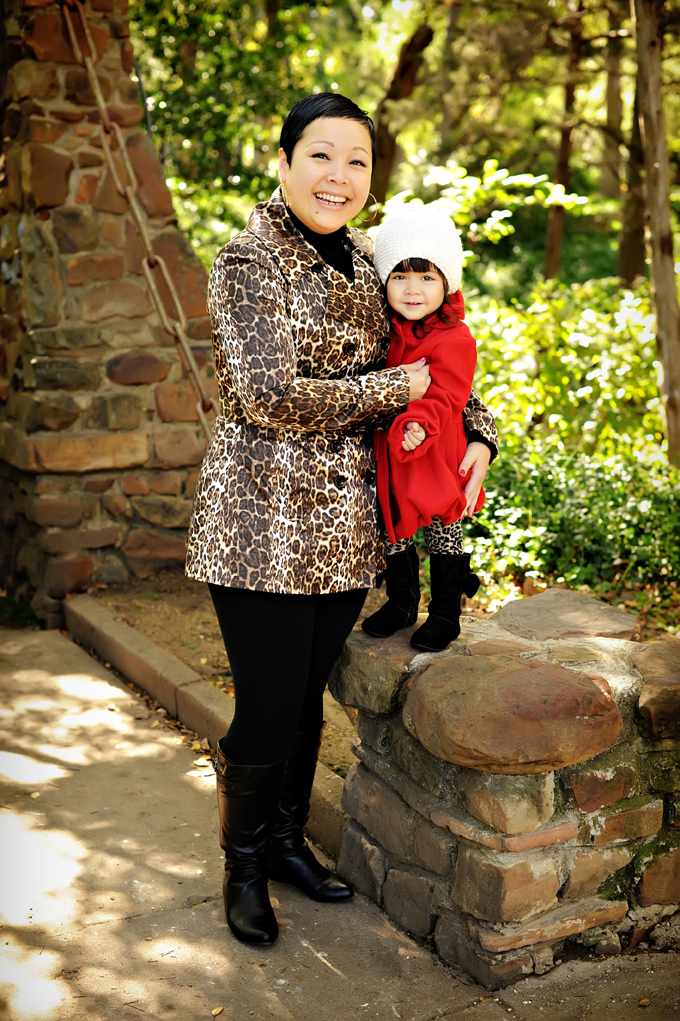
On January 13, 2010, Sonya was diagnosed with ductal carcinoma. As part of her diagnosis, she needed to have 18 lymph nodes removed to see if the cancer had spread. “I had routine blood work done in preparation for my surgery,” she says. “While I was waiting in my pre-op room visiting with my family, my breast surgeon and her nurse entered my room and asked to speak to me privately.”
As it turned out, Sonya’s blood work revealed that she was two weeks pregnant with her first child. Since Sonya hadn’t known she was pregnant when she was first diagnosed, her doctor warned her that she had already been exposed to two weeks of testing with high doses of radiation—MRIs, X-rays, nuclear injections and body scans. The fetus, the doctor said, was at a very high risk for deformities and at the least, mental retardation. “I prayed, and faith led me to keep my pregnancy,” Sonya says.
After three surgeries—including a double mastectomy and her first four rounds of chemo—Sonya was induced. Her daughter, Faith, weighed 5 pounds when she was born and was not breathing … at first. “Soon after she was perfectly healthy,” says Sonya. “Faith is thriving. She loves dinosaurs, trucks and, most of all, chocolate. She loves to dance, and has a hysterical sense of humor.”
Today Sonya, who lives in Cedar Hill, TX, says she’s joyful for no reason and eats chocolate every day without guilt. “Faith saved my life and feeds my soul,” she added.
Fact:
Women with no children, or who had their first pregnancy after the age of 30, have a slightly higher breast cancer risk.
NEXT: STEPHANIE'S STORY
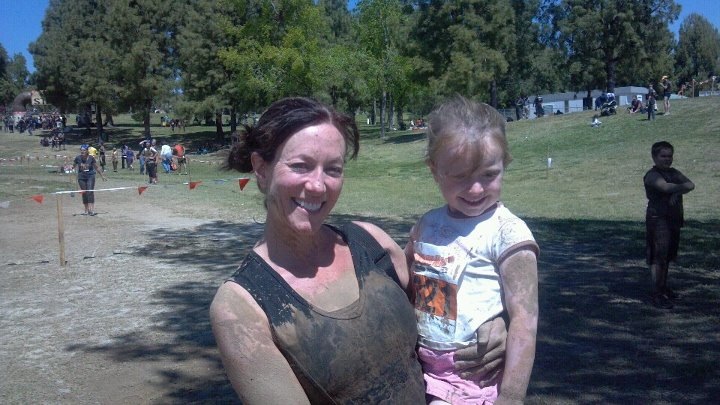
Stephanie’s Story
Stephanie and her husband had been trying for a second child for awhile before they decided to adopt. “We were in the middle of an adoption, and things were going smoothly,” Stephanie remembers. “Then I was diagnosed. Three days later I realized I was late, and my boobs were sore. I was in a daze of depression and confusion over the breast cancer diagnosis and in total shock, but my husband convinced me to take a pregnancy test. It came back positive.”
After running all over Los Angeles speaking with specialists—all of whom suggested that Stephanie abort her baby in order to start her treatment right away—she finally found City of Hope. “At the consultation, the doctor I met with was so warm and sweet, not clinical at all,” says Stephanie, who lives in La Cañada Flintridge, CA. “He told me they would treat my cancer while I was pregnant, and we came up with a plan.”
While pregnant, Stephanie received a lumpectomy and started chemotherapy. “I went through four rounds during pregnancy, it was crazy,” she says. Then, right around her due date, Hosford was induced and gave birth, vaginally, to a 6-pound, perfect baby girl.
Today, Stephanie is a six-year survivor with three beautiful children. (Their adoption went through as planned, as well.) “Once I committed to the pregnancy, I drew a stick picture of what I wanted my family to be, including my adopted daughter, and I put it by my bed,” says Stephanie. “I still have it, and today that’s exactly what my family does look like.”
Fact:
Women who have had more menstrual cycles (either because they started their periods before the age of 12 or went through menopause after 55) have a slightly higher risk of breast cancer.
NEXT: ROXANNE'S STORY
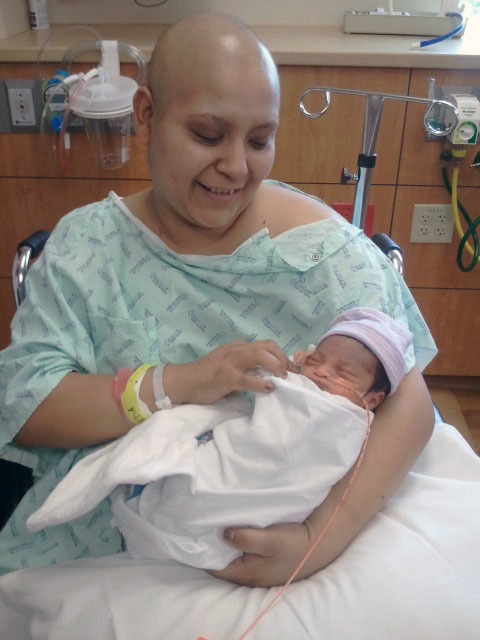
Roxanne’s Story
At age 30, Roxanne was diagnosed with an aggressive triple-negative breast cancer—just one week after learning she was going to be a mother. After much research and expert medical opinion, she underwent a mastectomy and chemotherapy while pregnant. “It was a tough pregnancy,” she says, “but I had a lot of support.”
In fact, a nationwide team of supporters nicknamed Team Roxy helped her raise money for her medical treatment after she was terminated from her job. “During my battle, I used social media to connect with other survivors,” says Roxanne, who lives in Fort Worth, TX. “Twitter helped connect me with two other moms who had also battled breast cancer while pregnant. These moms sent me photos of their healthy kids and shared their stories with me. This gave me the inspiration I needed to get through tough days, and helped ease some of my worries.”
Roxanne’s daughter, Serenity, is now 2 years old, and Roxanne uses her experience as a way to help others. “I am a breast cancer health advocate, and lead a breast cancer support network at my local cancer center,” she says. “I also serve as a volunteer for Hope for Two, supporting other women battling cancer while pregnant.”
To connect with Roxanne, you can find her on Twitter @teamr0xy (that's a zero for the O).
Fact:
Studies suggest that breast-feeding may slightly lower breast cancer risk, as it reduces a woman’s total number of lifetime menstrual cycles. However, more research is needed to completely understand the effects of breast-feeding on breast cancer.
NEXT: JAMIE'S STORY
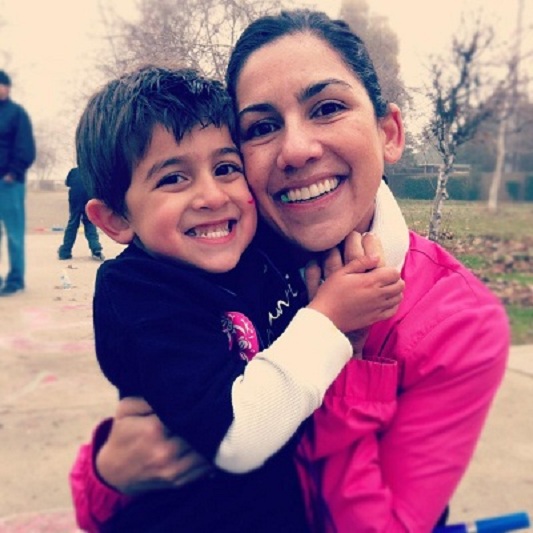
Jamie’s Story
Diagnosed with a triple-negative breast cancer at 27 years old and 14 weeks pregnant, Jamie’s doctors assured her that her yet-to-be-born son would be fine through chemo treatments, but her mother’s intuition needed more convincing. “That’s when I met two women, Katie Burson and Heidi Floyd [who also had cancer while pregnant],” says Jamie, who lives in San Diego, CA. “They took me under their wings and gave me the hope I needed to get through chemo each week and the subsequent surgeries. Both women gave me the courage through regular emails and phone call correspondence, and sent pictures of their miracle babies thriving.” Jamie’s son is now 6, and he’s starting kindergarten. “This is huge for us,” she says. “When I was diagnosed, I asked God to give me kindergarten.”
Fact:
Women who become pregnant while they are young and have many pregnancies may have a slightly lower risk of breast cancer later on, as they are exposed to less estrogen.
NEXT: HEIDI'S STORY
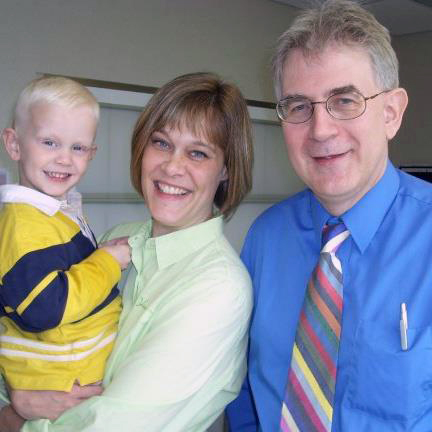
Heidi’s Story
Heidi found out within one week of learning she was pregnant that she had breast cancer. “The first oncologist I saw had never treated a pregnant women with cancer, and recommended terminating the pregnancy,” she remembers. But then Heidi found Dr. George W. Sledge Jr., a hero in the world of oncology. “He had done a lot of cutting-edge research on what chemo treatments would not cross the placental barrier,” she says. “He was the first person who gave me hope. I remember sitting with him like it was yesterday. He said, ‘Here’s what we’re going to do. We’re going to save that baby, and while we’re at it, we’re going to save you.’” For Heidi, who had lost her mother to cancer when she was very young, the long road of chemo treatments wasn’t easy. “I was sick when I was pregnant with chemo, and it was much more difficult than my other (three) pregnancies, but I had also been so sick with the others that I knew what to do, how to keep operating. Had I not been through such tough times with my daughters, I would have been horrified, but those pregnancies were great training.” Heidi gave birth to a healthy baby six weeks early. Today he’s an 8-year-old, rambunctious little boy. “You can’t tell by looking at him that he went through anything,” she says.
Today Heidi uses her experience to help others. She is a member of the Pink Power Moms initiative, and credits social media with being a game changer these days. “It didn’t exist when I was going through it, but there’s the most incredible support system around the world,” she says. “You can find women in your age bracket, demographic, your state … you can find someone. I thought I was alone in this, and thanks to social media you can find someone to help you through it today.”
To connect with Heidi, you can find her on Twitter at @followheidi
Fact: While it’s thought to be relatively safe for women to receive a mammogram during pregnancy, some patients and doctors postpone routine screenings due to a worry about the safety of doing a mammogram during pregnancy. Since scientists can’t be certain about the effects of small doses of radiation to an unborn baby, most feel it’s better to wait if your doctor doesn’t believe you need a mammogram right away.
